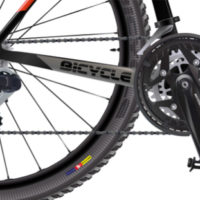Animal-Involved Fatal Bicycle Crash

A rider apparently lost control of his bike after he collided with a turtle, but authorities believe there were other contributing factors as well.
The incident occurred on a darkened stretch of road in Indian Harbor Beach, and it was not immediately clear what entity is responsible for lighting in that area. Investigators believe that after the biker collided with the turtle and fell over, a motorist may have ran over his motionless body. The rider, whose name was not released, suffered a head injury and died at the scene.
Bicycle Accident Injuries
Unfortunately, bikers must deal with many more hazards than a few wayward turtles. In 2015, the fatality rate in this area rose 12.2 percent, which is one of the largest year-over-year increases in history. In many Florida cities, the death toll rose even higher, because of the relatively low amount of bicycle traffic. Moreover, many cities in the Sunshine State have wide vehicle lanes that quickly move vehicle traffic but leave little room for designated bicycle lanes.
Such designated lanes reduce the risk of serious injury by up to 75 percent. Some of these serious injuries include:
- Head Injury: The thin, plastic bicycle helmets that most riders wear, if they wear them at all, provide excellent protection in accidental falls but may be of little help in high-speed collisions.
- Internal Injuries: When riders are thrown off their bikes, their organs jostle and grind against each other, causing dangerous internal bleeding.
- Nerve Damage: Most bikers extend their arms to brace their falls, and in so doing, they often rupture the brachial plexus nerve under their arms, causing permanent injury.
Bicycle crash victims are exempt from Florida’s no-fault law, so they are entitled to compensation for both economic losses, such as medical bills, and noneconomic losses, such as emotional distress.
Bicycle Accident Causes
Environmental factors cause many bicycle-vehicle collisions, for example, wet roads decrease tire traction and darkness decreases visibility. However, not all adverse environmental factors occur naturally. If the parking lot or other stretch of roadway is unusually dark because the owner failed to install and/or maintain proper lighting, the landowner is probably liable for damages. Florida basically uses a simplified common-law classification system to determine the duty of care:
- If the victim is a commercial invitee (someone who is on the land for business reasons), a public invitee (someone whom the landowner invites for a non-business purpose), or a licensee by invitation (social guest), the landowner has a duty to keep the premises reasonably safe and also to protect such visitors from third-party crime.
- If the victim is an uninvited licensee (someone whose presence confers no benefit on the landowner) or a trespasser (someone who is on the land without permission), the owner has no duty of care and no duty to protect.
Furthermore, the eggshell skull rule dictates that tortfeasors (negligent drivers) cannot excuse their negligence by pointing to a prior act of negligence or a prior injury. So, in the above story, if the tortfeasor is identified, the tortfeasor is probably liable for damages.
Partner with Aggressive Attorneys
Bicyclists risk serious injury with every trip they take. For a free consultation with an assertive personal injury lawyer in Port St. Lucie, contact Eighmie Law Firm, PA. We have three area offices.
Resources:
usatoday.com/story/news/nation-now/2016/11/30/bicyclist-killed-after-striking-turtle-florida/94670798/
fairwarning.org/2016/10/pedestrians-cyclists/


